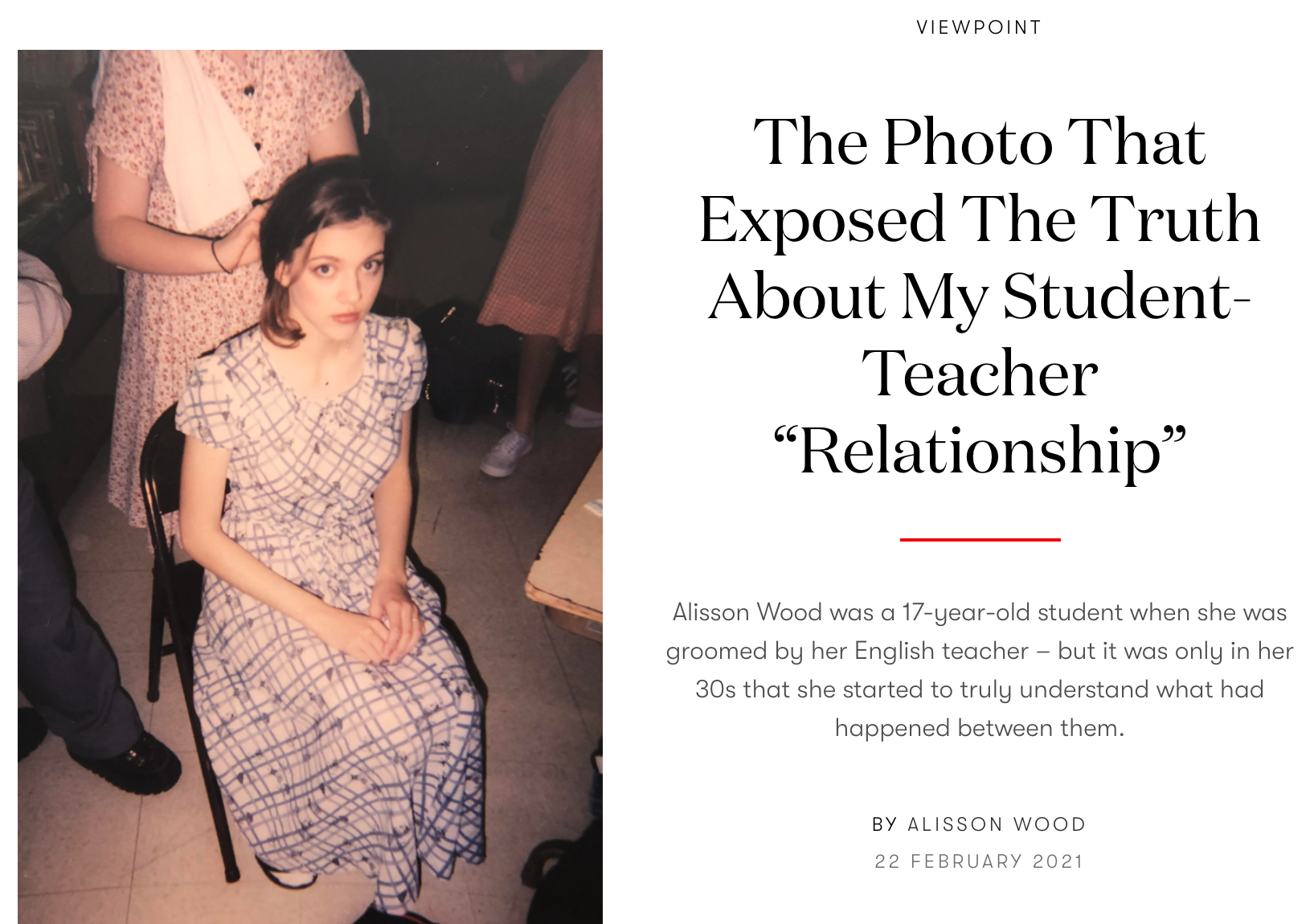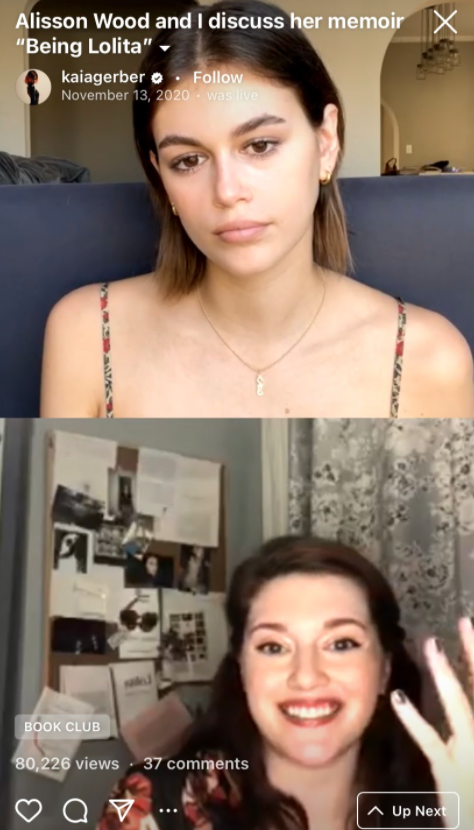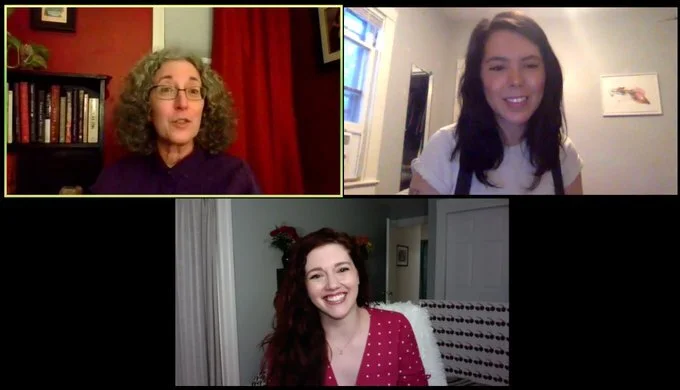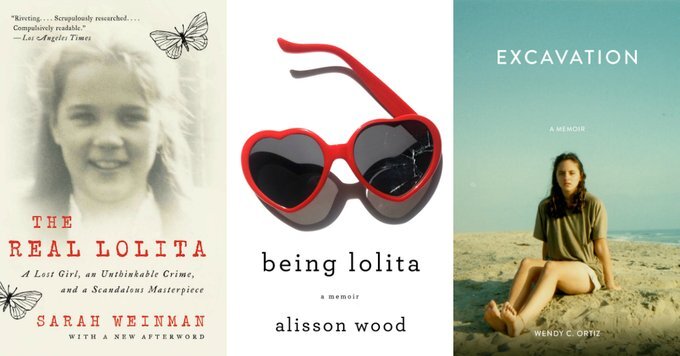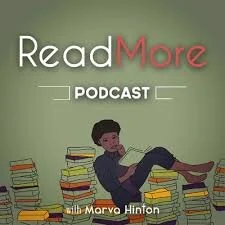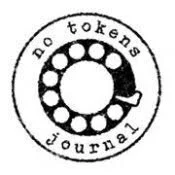Reading & Listening
Dissecting Pain: An Interview with Alisson Wood and Leslie Jamison in The Paris Review
“The romanticization of dead or depressed girls was just everywhere. Specifically, women who died from their suffering—Ophelia, Juliet, Virginia Woolf, the little mermaid, even in the movies I was watching then, from Angelina Jolie in Gia to Greta Garbo in Camille. For a woman to be beautiful, she needed to be in pain. Suffering created desire from others.”
“Lolita, Blake Bailey, and Me”, an essay in Vanity Fair
“One may assume, given recent allegations about Philip Roth biographer Blake Bailey and his abuse of young girls when he was a teacher, that this story is about him. It’s not. And in some ways, that’s the worst part: There is nothing unique about Blake Bailey. Just like there was nothing unique about my teacher who manipulated, abused, and raped me. Predatory men are pathetically all the same.”
“The Photograph that Exposed the Truth”, an essay in Vogue
“A four by six inch rectangle of truth stared back at me, of who I was at 17, and who I was not. I was not grown-up. I was not powerful. I was not confident. I looked like a vulnerable, scared girl, all skinny limbs and slouched shoulders. Yes, the dress was blue and white. Yes my lips were red, and my eyes looked into the unseen face of the teacher next to the camera. But I didn’t look sexy. I looked sad. Small. Fragile. Exactly what I was: a teenager in heavy make-up, ready to play make-believe on stage.”
Alisson Wood on The Mean Show
Listen to Alisson discuss Being Lolita, feminism, and predatory men on Episode 26 of The Mean Show podcast, part of Mean Magazine.
Zibby Owens of “Moms Don’t Have Time to Read Books” Interviews Alisson Wood
When Alisson Wood was a 17-year-old high school student, she became enmeshed in an abusive relationship with an English teacher. She talked to Zibby about the grooming that created a blueprint for her understanding of love for a long time, the complicated storm of power, sex, and gender dynamics, and why sharing her experience is so important to empower others who have experienced trauma.
A Life of Books with Alisson Wood, at Debutiful
“Lolita is not a story about love, and is one more story in our Western canon showcasing a sexualized teenager, scandalizing trauma to the point of enticement, and deeply misogynistic. We don’t need Lolita anymore.”
Alisson Wood on the Myth of Catharsis and Reclaiming One’s Power
“I believe that the personal is political, and so it’s important for women to share our stories. I don’t think that any of my stories are unique.” Alisson Wood interviewed by Luna Adler for Lit Hub
No Longer the Victim, I am the Threat: Alisson Wood interviewed by Michele Filgate for BOMB Magazine
“By taking control of my story, I am no longer a simple victim, someone being acted upon by a predator. I am now the actor. I am the threat.”
Alisson on the complications of being “brave” on this episode of Pop Fiction Women.
“Prettiness is a bomb.”
Lolita Belongs to the Girls Who Lived It: Alisson Wood interviewed by Lilly Dancyger for Electric Literature
“I believe there is a lot of power in telling these stories, in particular for women. So often our stories are put in a corner of being domestic, unimportant, “chick lit,” and treated as if they don’t carry any real weight. So I think it is incredibly powerful and incredibly important for women to defy those stereotypes and tell their stories, as complicated and as messy and as imperfect as they are, and I’m very proud to be part of that tradition.”
Alisson Wood Reclaims Her Power in “Being Lolita”: Interviewed by Evette Dionne for Bitch Media
“Part of acknowledging predators, acknowledging violence in art, and acknowledging the cliché of the dead girl is realizing that pieces of art aren’t perfect. Acknowledging that Lolita is beautiful and also problematic as f*ck is one small step in that larger never-ending work.”
Setting Yourself Free: A Conversation with Alisson Wood: Interviewed by Hannah Bae for The Rumpus
“Your story does not have to end in marriage and a castle. Your happy ending does not require a prince. You can still find happiness in your life, in your friends and family, and in choosing the work that you do. You can make your own happy ending”
An Evening with McNally Jackson Books
Watch my conversation and reading with Lynn Steger Strong (WANT) & Michele Filgate (WHAT MY MOTHER AND I DON’T TALK ABOUT) live at McNally Jackson on August 26th, 2020
Being Lolita Author Alisson Wood Challenges the Idea of Memoir as Catharsis: An Interview by Samantha Puc for The Mary Sue
“Part of the power of this book and of telling this story was the fact that this is real. This is what happened to me; it’s not just some literary, fantastic idea.”
Consent, Power, & the Patriarchy at Politics & Prose Books
Watch a reading and conversation with Alisson Wood, Michelle Bowdler, and T Kira Madden for Politics and Prose Bookstore on August 6th, 2020
“What to Read When You Want to Read Lolita” for The Rumpus
“So, you’re finally going to read Lolita. Great! But, maybe read some of these other books first?…”
Alisson Wood visits the Read More Podcast.
Enjoy Alisson’s conversation with host Marva Hinton about Being Lolita, gender expectations, and writing for other women.
Author Alisson Wood stopped by the Jam Bunker to talk cats, feminism, her little sister, politics, more cats, and her brilliant memoir Being Lolita, which is “a coming-of-age memoir that shines a bright light on our shifting perceptions of consent, vulnerability, and power.”
Listen to the podcast here.
Read an excerpt of Being Lolita at No Tokens Journal
“Now, more than fifteen years after the teacher told me he loved me, I wanted to hold Nabokov’s butterfly, his object of obsession, in my hand.”
Read an exclusive chapter of
Being Lolita at The Rumpus:
The Warning Bell
“The series of bells became our song—the first meant I could go to him; the middle that I was almost there, a warning that if I didn’t hurry, I would get caught in the hallway and be given a detention slip; the third that I was safe inside his classroom, a ring of safety.”
“Alisson’s book is the powerful and personal story of a seventeen-year-old girl who was groomed by an English teacher at her high school who used the book Lolita to transform Alisson from student to lover to victim. But Alisson’s book is also a memoir of survival that looks at the ways she rewrote her own story…,”
Listen to the podcast here.
It was after 2 a.m., the Sunday before Christmas, and snow was falling. In some ways, in the very visceral, physical, rape way, it was all over. In more important ways, it was just beginning.
Read the essay “‘Get Home Safe,’ My Rapist Said” at the New York Times.
I hate running. I hate my feet snapping off the ground in syncopated succession; I hate the rabbit-heart feeling in my chest. I hate not being able to breathe freely. I hate the sweat my body produces, the way it’s always working to keep me safe. Really, what I hate most is what it makes me remember.
Read the essay “On Adrenaline, or Running for My Life” at Catapult.
Selected Interviews
“Q&A with a Breakout 8 Winner,” The Authors Guild
“things we like ft. Alisson Wood,” fields
“Lolita, Pigeons, and T-Swift: An Interview with Managing Editor Alisson Wood,” Washington Square Review


